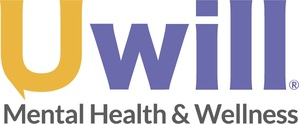
Overwhelming majority of institutions have seen increased demand for mental health support; most report lack of services tailored to online students
NATICK, Mass., May 30, 2024 /PRNewswire/ -- An overwhelming majority (82.58%) of faculty, staff and administrators working with online students have seen an increase in demand for mental health support over the past academic year. The global survey of higher education professionals was released by the Online Learning Consortium and teletherapy provider Uwill. These findings underscore the critical importance of expanding online mental health support in an era where more than half of all U.S. college students are enrolled in online courses.
"More students are taking online courses than at any time in our history. At the same time, a deepening crisis of student mental health and an epidemic of digital isolation and loneliness are creating challenges that affect online learners in unique and profound ways," said Michael London, founder and CEO of Uwill. "This data adds to our understanding of how mental health challenges manifest in the online environment—and the role that online faculty and staff play as first responders. We hope the findings shed new light on the issue as online programs work to center mental health and well-being in the online experience."
The survey of 338 instructors, staff, and administrators at colleges and universities gauged the perspectives of higher education professionals on a range of issues related to online student mental health and well-being. In the 2022-23 academic year, approximately 53% of all students were enrolled in at least one online course.
According to the survey, more than 70% of respondents (71.75%) said that online students occasionally, frequently, or very frequently reach out regarding mental health concerns. More than 50% (54.79%) noted a lack of services tailored to online student needs. More than two-thirds noted online students have access to onsite counseling (66.67%), while only 39.19% mentioned teletherapy.
Due to state licensing restrictions, on-site counseling options are often limited or unavailable to students enrolled in programs outside their state of residence. While most on-site counseling services operate during traditional business hours, the vast majority of online students are more likely to work full- or part-time and seek support outside of standard working hours as they balance the demands of work, academics and family commitments.
"To make good on the full promise of online education, we must recognize and address the profound intersection between mental health and student success," said Jennifer Mathes, Chief Executive Officer of OLC. "Even with the rising incidence of serious mental health challenges, online faculty and staff clearly can play a critical role in building thriving online student communities that prioritize and support mental health and well-being."
Other findings from the survey include:
- Faculty and Staff as Online Mental Health First Responders. Despite a significant number who report contact with students about mental health issues, a troubling percentage of faculty and staff do not feel adequately prepared to serve as mental health first responders. More than a third (37.44%) felt inadequately or very inadequately trained to recognize and respond to mental health issues with online students.
- Need for Additional Training and Professional Development. Based on increased demand for support, an overwhelming majority (83.25%) expressed a high level of interest in receiving additional training on how to support the mental well-being of online students.
- Awareness, Availability and Access as Barriers. Nearly two-thirds (62.1%) of respondents said that time constraints have a significant to very significant effect on hindering access to mental health services for online students. Other common issues observed by faculty and staff included limited awareness of available services (58.64%), a lack of services tailored to online student needs (54.79%), financial constraints/ insurance coverage (46.29%), lack of services in general (45.66%), and limited appointment availability (44.75%).
- Students Not Satisfied with Mental Health and Wellness Support. More than 30% (34.83%) believe students are not satisfied with the mental health services offered by their institution.
The survey was conducted using a self-administered online questionnaire sent to faculty, staff, and administrators working with online programs. Respondents included both full- and part-time faculty and staff: 49.41% were faculty; 21.30% selected a role of "other;" 18.05% were student success/support staff; 14.79% were program or department chairs; 13.91% were academic advisors; 10.95% were institutional leaders; and 3.85% were counseling services staff. The majority of respondents (63.28%) work for public institutions, while 24.18% work for private non-profit institutions, and 12.84% work for private for-profit institutions. The survey received responses from all 50 U.S. states and Washington, D.C., as well as 36 countries.
About Uwill: Uwill is the leading mental health and wellness solution for colleges and students. Utilizing its proprietary technology and counselor team, Uwill pioneered the first student and therapist matching platform. The solution offers an immediate appointment with a licensed counselor based on student preferences, all modalities of teletherapy, a direct crisis connection, wellness events, real-time data, and support. The most cost-effective way to complement a college's mental health offering, Uwill partners with more than 300 institutions, including the University of Michigan, the University of Alabama - Online, Morgan State University, Seton Hall University, American Public University System, and Lac Courte Oreilles Ojibwe College. Learn more at Uwill.com.
About OLC: The Online Learning Consortium (OLC) is a collaborative community of education leaders and innovators dedicated to advancing quality digital teaching and learning experiences designed to reach and engage the modern learner — anyone, anywhere, anytime. OLC inspires innovation and quality through an extensive set of resources, including best-practice publications, quality benchmarking, leading-edge instruction, community-driven conferences, practitioner-based and empirical research, and expert guidance. The growing OLC community includes faculty members, administrators, trainers, instructional designers, and other learning professionals, as well as educational institutions, professional societies, and corporate enterprises. Learn more at onlinelearningconsortium.org.
Contact:
Brett Silk
[email protected]
SOURCE Uwill, Inc







Share this article